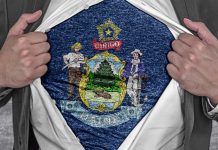As Sportradar’s Andrew Bimson noted in his reflection on the first five years of sports betting post-PASPA, the US industry, out of necessity, did a lot of wholesale importing from more mature jurisdictions. As the floodgates opened in the States, people justified not developing new talent citing a desire to keep up with the breakneck speed that states were legalizing sports betting.
At this reflection point in US sports betting and online gambling though, it is time to fundamentally rethink how companies are growing and how the industry is recruiting new talent.
Wondr Nation and its President and CEO Anika Howard are a perfect example of a company that did not take something established elsewhere and retrofit it to the US. Instead, it is not just a uniquely American endeavor but a uniquely tribal one. As the online gambling company of the Mashantucket Pequot Tribal Nation, the company has inclusion at the heart of its mission and Howard believes diversity is crucial for a company’s success.
Gaming needs to rethink diversity’s position in the industry

“I think my problem with diversity is the fact that we say that there’s a problem with diversity,” Howard told SBC Americas. Her competitors and, to be frank, US businesses in general, think of diversity, equity, and inclusion as something that is tangential to the business versus crucial to its survival.
“I think some of it is the way that it’s framed. As opposed to it being a problem that you have to solve, a quota that you need to fill, this checkbox that managers feel like there’s an obligation to do…if you flip it and look at the things that are going to make your company competitive, when you look at the things that are going to differentiate yourself, diversity is at the top of the list.”
That paradigm shift of how diversity is viewed is central to Wondr Nation’s mission statement and one of the main reasons they tapped Howard to oversee the endeavor.
“I think at our core we really came into the industry seeing that there was a gap and there was an opportunity to amplify more diverse voices, to bring different perspectives, and to do things differently. So I think our core identity is very much about bringing an authentic and unique voice to the market,” Howard recalled.
The Mashantucket Pequot have a strong history of brick-and-mortar success with Foxwoods Resort Casino, but like many tribal casinos, online gambling seemed to be developing independently of the tribes.
“When they hired and recruited me, as we were going through the process, they wanted to bring someone that had that expertise in market into the organization. Foxwoods and the Mashantucket Pequot Tribe, in particular, have always been forward-thinking as it relates to technology, but they were really trying to get the right balance of someone that can help them bring that vision to light and also to have a vision that was big enough and bright enough to really have the tribe and the tribal council and all of the key players rally behind and that was very important. With many organizations, and the tribes are no different, after the pandemic there was this need to diversify outside of pure gaming. And we also need to create a way that the tribe can be an active participant in this market.”
Fostering new talent in gaming remains a central issue
Since the pandemic, Connecticut has legalized sports betting and online casino gaming and Wondr Nation continues to build and grow. With that comes a search for talent and many companies say the pool of qualified candidates in such a specific space is too shallow to adequately address diversity needs.
As Howard pointed though, some of these problems stem from expectations of the hiring company and an insistence on applicants with previous experience has created a frustrating Catch-22 that prohibits them from breaking in.
“You go into this continuous circle that you want to break in, but you don’t have the experience to break in, but you can’t get experience and so a lot of what we’re doing with Wondr Nation are creating development programs.”
Howard highlighted two programs Wondr Nation offers that accept interested applicants with not only that crucial experience but also the potential to even earn college credits. The company’s apprentice program allows those who did not pursue a college degree to work within the industry and earn college credits through a stackable certificate program.
There is also an associate program that allows those with an interest in the gaming industry to learn a little bit about every vertical and become a generalist, developing a portfolio of projects along the way.
Training programs within the industry are one solution to addressing the perceived lack of experience in the talent pool, but Howard also pointed out that companies need to be more willing to consider the transferability of skills across verticals, especially in such a nascent industry as online gambling. It is something GeoComply’s Lindsay Slader echoed in her discussion of talent acquisition.
“One of our ladies that is amazing came from the credit card industry and she’s leading our loyalty program. So when you say that you can’t find people, part of it is that maybe you’re not necessarily willing to invest the time and development because if you can find the talent, the talent is there.”
Companies are obviously keen to find the best talent, especially as operators in particular rush to differentiate their tech from the competition. But with competition comes the need to develop loyalty in your workforce. Howard pointed out that a more inclusive workforce not only produces a better product and more innovation, but it makes employees feel more wanted and included, particularly the younger end of the workforce like Generation Z.
“Now companies and people that are talented will not come to the organization if they feel like it doesn’t align with their values. They’re not going to stay in places where they don’t feel seen and included, and then it becomes a turnover issue,” she said.
Regulators taking steps to improve DEI in online gambling
Despite all of these clear benefits diversity in gaming can bring to the table, some of the change is actually being brought on involuntarily. Jurisdictions like Massachusetts and Maryland are adding diversity requirements into their regulations not only when it comes to hiring but when it comes to vendor and supplier spending as well. Howard acknowledged the forceful push diversity isn’t ideal, but it is better than nothing.
“In a perfect world all these things would happen, but it takes these types of regulations to push the change along and so, absolutely these [regulations] are important.”
How these regulations are enforced is equally important too. Howard noted that regulators can’t just throw standards out there and then expect companies to meet them without guidance.
“It requires engaging with diverse communities and it requires a better understanding of their needs and concerns and building strong relationships with the industry and those communities.”
Howard cited a supplier diversity symposium hosted by here previous employer, Caesars, as a great example of things the industry can do to help foster more minority interest in becoming a supplier. Education about the industry is paramount, particularly given the very high barrier to entry. That licensing process is something Howard said many companies, not just minority-owned ones, are often surprised by.
“There’s so many amazing tech companies that come to us and pitch us things and they have no idea about gaming. They have no idea of all the things that they need to do. And so there is a learning curve, absolutely. We can’t even talk to you until you have these things in place.”
Walking interested groups through the process of licensing is another way the industry can better address the need for more diverse suppliers, but that doesn’t happen without investment from people and organizations who understand it may require some time, effort, and even money, but will pay dividends in the years to come.
In other words, as we move into the next five years of online sports betting, it is time for companies to stop being reactionary and start fundamentally rethinking how their organizations are using diversity to enhance their offering and not just check a box.














